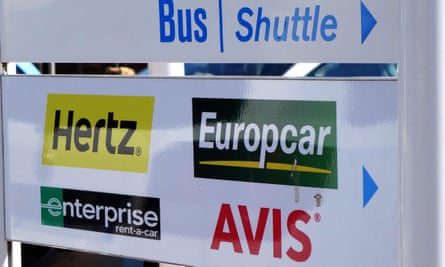Holidaymakers in England, Scotland and Wales have been given the green light for trips abroad. Travel is restricted to a small number of countries but the early signs are that they are proving popular with those desperate for a change of scene – this week Tui announced it would be putting on bigger planes to meet demand for trips to Portugal. Bookings for flights to the island of Madeira rose by 625% straight after the green list of countries was announced, according to the website Skyscanner, while demand for Gibraltar leapt by 335%.
For most people, this will be the first trip abroad since the UK’s post-Brexit transition period ended. Here’s our guide to booking a trip in the time of Covid and after the time of the EU.
In what circumstances can I claim on travel insurance?
Since March 2020, insurers have written and rewritten their travel policies several times as the understanding of and responses to the coronavirus pandemic have evolved. While the terms vary according to each company, most will now cover your medical treatment if you contract Covid-19 while away.
Most will also cover the cancellation of your trip if you, or one of your party, contracts the virus before you depart – in some cases this might be detected in your pre-flight test. Only some policies will cover you if you are forced to cancel because you have been told by NHS test and trace to self-isolate, a realistic enough proposition to make it essential that you look out for this clause before signing up.
A lack of cancellation cover will not be a problem for anyone who books a package holiday
No company, however, will cover the cancellation of your trip if you are unable to go on your holiday because either your home area or your destination is put into a lockdown after you booked. Policies have changed so much since March last year that you need to check what you are covered for, particularly if you have bank account-provided insurance.
A lack of cancellation cover will not be a problem for anyone who books a package holiday as the tour operator will be forced to cancel if either the destination country bars entry or the Foreign Office advises against travel there. A few insurers – Staysure is the best known – will cover you (for an extra fee) if the Foreign Office advises against tourist travel to a destination that is open in every other regard.
Delay booking for as long as you can, and then quickly buy insurance – having had a close read of the policy documents before you pay. In general, the key to booking a foreign trip this year is to opt for cancellable hotel and car hire options, meaning you can limit your losses if the worst happens. Pay by credit, not debit, card and consider a package (flight plus hotel) deal for the better Atol protection it affords.
How much will a trip cost?
 View image in fullscreenThe travel company Tui is switching to bigger planes to meet the demand for trips to Portugal. Photograph: Pedro Nunes/Reuters
View image in fullscreenThe travel company Tui is switching to bigger planes to meet the demand for trips to Portugal. Photograph: Pedro Nunes/Reuters
The cost of trips to green list countries does appear to have risen with demand but there are still some relatively cheap flights available to Lisbon and other destinations, if you are not fussy about when you fly.
For package holidays, travelling to the Algarve to self-catering accommodation rated good in the first full week of August will cost £1,200 for a family of four if you want to go on a Saturday but will be cheaper if you set off midweek.
A two-night weekend break in Iceland for two adults at the start of September costs from £436 for a room and flights.
The good news for those contemplating a trip to Portugal is that the Algarve is one of the cheapest resorts in the world for holiday spending, according to the Post Office’s annual travel money survey. It looked at the price of eight things, including a three-course meal for two, a can of Coca-Cola, a local beer and a bottle of sunscreen, and found they were only cheaper in Sunny Beach, Bulgaria, and Marmaris in Turkey. Funchal in Madeira – another destination allowed by the green list – was 10th on the worldwide list.
How long can I stay in Europe?
The days of stay as long as you like in the EU are over for UK passport holders – but you can still enjoy two weeks in the Algarve without extra paperwork. Britain and the EU have agreed visa-free travel for short visits, meaning UK passport holders can spend up to 90 days in the Schengen zone during any 180-day period.
This can be in a series of short visits or one long visit, and it applies to all EU countries with the exception of (non-Schengen) Bulgaria, Croatia, Cyprus and Romania. You could make a 90-day trip to any of those and still not use up your 90-day Schengen allowance. The same is true of Ireland, which allows unrestricted travel from the UK as part of a common travel area for British nationals.
At border control, you may need to show a return or onward ticket, show you have enough money for your stay, and use separate lanes from EU, EEA and Swiss citizens. Your passport will be stamped.
What’s the deal with passports?
 View image in fullscreenThe website Skyscanner says demand for trips to Gibraltar has risen by 335%. Photograph: Cristina Quicler/AFP/Getty Images
View image in fullscreenThe website Skyscanner says demand for trips to Gibraltar has risen by 335%. Photograph: Cristina Quicler/AFP/Getty Images
If you haven’t checked your passport for a while – why would you? – it is worth doing so this weekend. Prior to Brexit, a passport simply needed to be valid to visit the EU – now you must have at least six months before your passport expires to be allowed in. It will also have to be less than 10 years old. These rules do not apply to travel to Ireland, where a UK passport needs only to be valid for the length of your stay.
It costs £75.50 to renew or replace your passport online, or £85 if you fill in a paper form. The standard service takes 10 weeks.
Ehic or Ghic?
If your European health insurance card (Ehic) has not expired – more than 6m expired this year – you can still use it in the EU this summer. These cards give you access to state-run hospitals or GPs at the same price as a local person. They are free to obtain, worth having and are expected to be carried by travel insurers.
If your Ehic has expired, apply for a global health insurance card (Ghic), which you can get for free. Despite its name, as with the old UK Ehic, it will only cover you in EU countries. You will need to apply separately for each member of your family, including any children, and should expect the card to take 10 days to arrive. Don’t be caught out by websites asking for payment – Ghics are always free.
What’s happened to duty-free – does it still apply?
Brexit means that most Britons (not those in Northern Ireland) flying off to European destinations can buy duty-free booze and tobacco as they leave the country. HMRC says holidaymakers could save up to £11.50 of duty on a litre of vodka, whisky or any other strong spirits – more than 40%. Previously, only those leaving for non-EU destinations could stock up on duty-free on departure. The EU allows entrants to bring in one litre of spirits, duty-free.
Travellers returning to the UK are restricted to 18 litres of wine (which is two cases or 24 bottles), 42 litres of beer and four litres of spirits or liqueurs more than 22% in alcohol – plus up to 200 cigarettes, all duty-free. For visits to the current green list countries that is likely to be more than enough, given it’s unlikely you will be taking the car. You can bring in more but must declare it and pay the duty.
 View image in fullscreenTravellers returning to the UK are restricted to four litres of spirits or liqueurs. Photograph: Alamy
View image in fullscreenTravellers returning to the UK are restricted to four litres of spirits or liqueurs. Photograph: Alamy
At the same time, those from England, Wales and Scotland returning from a holiday in the EU can only bring in other shopping worth up to £390 tax-free. Travellers bringing in shopping worth more must make a declaration on all of their goods and may be subject to customs duties, and import VAT.
Driving in Europe and hiring a car – what’s changed?
The good news is that UK photocard driving licences will be accepted in the EU, Switzerland, Norway, Iceland and Liechtenstein. It was thought that drivers here would need an international driving permit from the Post Office. Those with an old-style paper licence may still have to get one, or an upgrade to a photo licence.
If you are hiring a car, the UK photo licence will be fine in most countries. Your hire company may ask to see your driving licence information when you pick up the car. You can share this by getting a licence check code up to 21 days before your trip.
 View image in fullscreenThe UK photo licence will be fine to use in most countries if you are hiring a car. Photograph: Mike Ford/Alamy
View image in fullscreenThe UK photo licence will be fine to use in most countries if you are hiring a car. Photograph: Mike Ford/Alamy
Cyprus is not on the green list but when trips there are allowed again Rentalcars says anyone hiring for more than 30 days in Cyprus will need the 1949 IDP.
Drivers taking their own car to the continent will need a green card to show they are insured. Your insurer will send or email you one, which in the latter case, you will need to print out in colour – because they really are green. They apply in the EU – including Ireland – and Andorra, Iceland, Liechtenstein, Norway, Serbia and Switzerland.
Mobile roaming – is it still free in Europe?
The four main providers – EE, O2, Vodafone and Three – have said they have no plans to end charge-free roaming for Britons in the EU – although they could reimpose charges as a result of Brexit. Calls and texts home, and to local numbers in the country you are in are charged as if you were at home. UK data allowances can also be used within the EU, subject to a fair-use policy in some cases.
Additional reporting by Hilary Osborne



